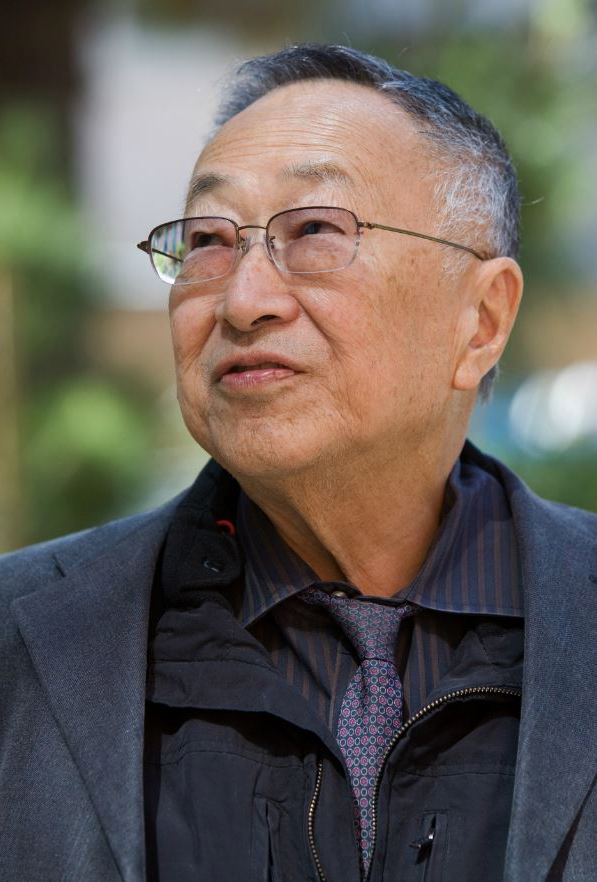Professor emeritus Paul Terasaki remembered for medical innovation

(Courtesy of UCLA)
By April Hoang
Jan. 31, 2016 4:11 p.m.
Dr. Paul Terasaki, a professor emeritus of surgery who worked in the David Geffen School of Medicine, died Monday from kidney disease. He was 86 years old.
Terasaki was a pioneer in transplantation and remained dedicated to UCLA until his death, said Ricardo Ordóñez, director of management at Terasaki’s research company, One Lambda.
After graduating from UCLA in 1950, Terasaki returned to establish the largest kidney transplantation registry in the world. He won the UCLA Edward A. Dickson Alumnus of the Year in 2012, funded the Terasaki Life Sciences Building and developed a test to minimize chances of organ rejection in patients.
Elaine Reed, director of the UCLA Immunogenetics Center and Terasaki’s successor since 1999, said she has looked up to Terasaki since she met him as a UCLA graduate student in 1980. She said he devoted years of his life to unifying the field internationally, and continued working well after retirement.
Reed added she thinks his achievements will forever change the way immunogenetics and transplantation are approached in the future.
Ordóñez said Terasaki was an innovative scientist who never stopped looking to improve on whatever invention he had just introduced.
“If you think about the thousands of people that are alive today because of Paul Terasaki, it’s amazing,” Ordóñez said.
Ordóñez added he has known Terasaki since he was a second-year student at UCLA 34 years ago.
“I was one of eight students from his lab who he selected to work at One Lambda,” Ordóñez said. “I haven’t worked for anyone else in my life. I almost feel like I’ve lost a parent.”
Victoria Sork, dean of life sciences and Terasaki’s colleague and friend, said she thinks he had a major impact on human lives with his tissue-typing test.
“Any UCLA undergraduate students in the health sciences should be very proud to share a campus with such an alumnus,” Sork added.
Ordóñez said those who met Terasaki were often shocked by how humble he was, despite having so much professional success.
“If you saw him you’d never know it was this brilliant scientist,” he said. “He didn’t look the part. He was quiet and low-key, but very engaging at the same time.”
Ordóñez said Terasaki would often spoil his employees and their families. He said Terasaki once took them on a Disneyland trip, as well as an extravagant cruise for the company’s anniversary.
Reed said Terasaki loved being surrounded by friends and colleagues, and traveled the world to speak about transplantation. She added he was a fun-loving presenter who would always involve humor and entertainment in his workshops.
Ordóñez added Terasaki had many unique interests outside of medicine, including Mexican mariachi music, which he played at his 50th wedding anniversary.
“He had an enormous, deep love for ice cream,” Ordóñez said. “I always saw him and his wife at the Sizzler in Santa Monica – he told me it was because they liked the senior discount code.”
Sork said she still remembers the moment Terasaki received the UCLA Medal at the 2012 commencement exercise for his contributions to UCLA and medicine.
“He joked that students should do something with their lives sooner than he had,” Sork said. “Everybody spontaneously started chanting his name. I have never seen anything like that before.”
Sork added Terasaki would always eat lunch with his colleagues and brought his love for community and hospitality wherever he went.
“Even after he gave $50 million to finish funding the Life Sciences Building, he still asked to add tables, chairs and a restaurant,” Sork said. “That’s why the Terasaki food cart was put in the plaza.”
Sork said Terasaki continued donating to UCLA after he retired in 1999 because he felt the institution’s resources had helped him become successful in life, and he wanted to share his gratitude.
“His love for UCLA was undeniable,” said Ordóñez. “This university was everything to him.”
Ordóñez said the Terasakis also had an unwavering commitment to preserving the history of Japanese-Americans in the United States. He said they donated to organizations like the National Japanese American Memorial Foundation in Washington, D.C.
“Dr. Terasaki and his family were interned in camps during World War II,” Ordóñez said. “He wanted to make sure that part of history never went away.”
In 2012, Terasaki announced he had kidney disease and had been put on dialysis, but still organized a conference in January 2014 that gathered influential transplanters from around the world.
“His health was deteriorating and he was in a wheelchair, but he was determined to make this happen,” Ordóñez said. “His tenacity was unbelievable to me.”
He added he thinks the work Terasaki did during his lifetime will make future innovation in his field possible.
“This is a very difficult loss, (and) not only for me,” Ordóñez said. “UCLA would not have the recognition it has today without Paul Terasaki. He put us on the map for transplantation.”
Family members and colleagues will hold a memorial for Terasaki at 11 a.m. on March 6 at Royce Hall.


